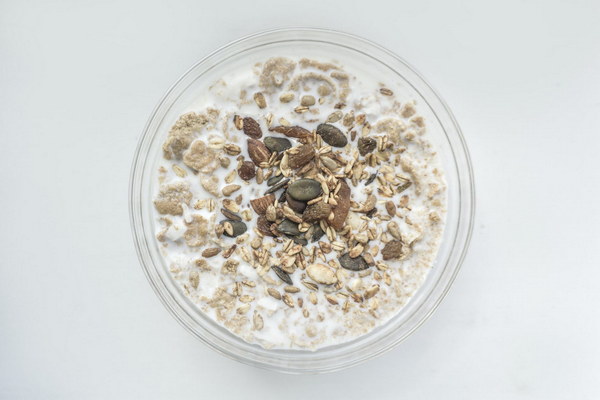Gender-Specific Liver Health Nurturing Your Liver for a Longer, Healthier Life
In the pursuit of optimal health, it is essential to recognize the unique health needs of both men and women. One critical aspect of overall health is liver function, which is vital for detoxification, metabolism, and energy production. While the liver's primary role remains consistent across genders, certain factors can influence how men and women should approach liver health. This article will delve into gender-specific strategies for nurturing your liver and maintaining a longer, healthier life.
Men's Liver Health: A Closer Look
Men have specific risks and factors that can impact their liver health. Here are some key considerations:
1. Alcohol Consumption: Men are more prone to alcohol-related liver diseases such as cirrhosis and liver cancer. This is due to higher alcohol dehydrogenase (ADH) enzyme activity, which metabolizes alcohol more quickly in men than in women. Therefore, it is crucial for men to moderate their alcohol intake to protect their liver.
2. Body Fat Distribution: Men tend to have a higher proportion of body fat around their abdomen, which can increase the risk of non-alcoholic fatty liver disease (NAFLD). Reducing abdominal fat through a healthy diet and regular exercise can help mitigate this risk.
3. Metabolic Syndrome: Men are more likely to develop metabolic syndrome, a cluster of conditions that increase the risk of heart disease, stroke, and type 2 diabetes. Since metabolic syndrome is also associated with NAFLD, managing the syndrome through lifestyle changes is essential for liver health.
4. Medication Use: Men may be more susceptible to adverse effects from certain medications, such as acetaminophen, which can cause liver damage if taken in excess. It's important for men to be cautious about medication use and consult with their healthcare provider when necessary.
Women's Liver Health: Unveiling the Differences
Women also have unique factors that affect their liver health:
1. Hormonal Changes: Women's liver function can fluctuate due to hormonal changes, particularly during pregnancy and menopause. Estrogen, for example, has a protective effect on the liver, but it can also increase the risk of NAFLD. It is essential for women to maintain a healthy lifestyle during these periods to support their liver function.

2. Medication Use: Women may be more susceptible to adverse effects from certain medications, such as hormonal contraceptives and certain antidepressants. It is crucial for women to be aware of the potential risks and discuss them with their healthcare provider.
3. Autoimmune Liver Diseases: Women are more prone to autoimmune liver diseases, such as primary biliary cholangitis (PBC) and primary sclerosing cholangitis (PSC). These conditions can be challenging to diagnose and treat, emphasizing the importance of regular check-ups and early intervention.
General Liver Health Tips for Both Genders
While recognizing gender-specific factors is crucial, there are universal strategies for promoting liver health:
1. Maintain a Healthy Diet: A balanced diet rich in fruits, vegetables, lean proteins, and whole grains can support liver function and reduce the risk of NAFLD. Avoid excessive intake of processed foods, sugary drinks, and high-fat foods.
2. Exercise Regularly: Regular physical activity can help manage body weight, reduce abdominal fat, and improve overall health, including liver function.
3. Limit Alcohol Consumption: Both men and women should limit their alcohol intake to protect their liver. For women, this means no more than one drink per day, while men should stick to two drinks per day.
4. Avoid Over-the-Counter Medications: Be cautious about the use of over-the-counter medications, particularly those containing acetaminophen. Always follow the recommended dosage and consult with a healthcare provider if you have concerns.
5. Stay Hydrated: Drinking plenty of water can help support liver function by flushing out toxins and maintaining healthy liver cell function.
6. Manage Stress: Chronic stress can contribute to inflammation and negatively impact liver health. Engaging in stress-reducing activities, such as meditation, yoga, or deep breathing exercises, can help protect your liver.
In conclusion, understanding the gender-specific factors that influence liver health is crucial for both men and women. By adopting a healthy lifestyle and being mindful of their unique risks, individuals can take proactive steps to nurture their liver and enjoy a longer, healthier life.









